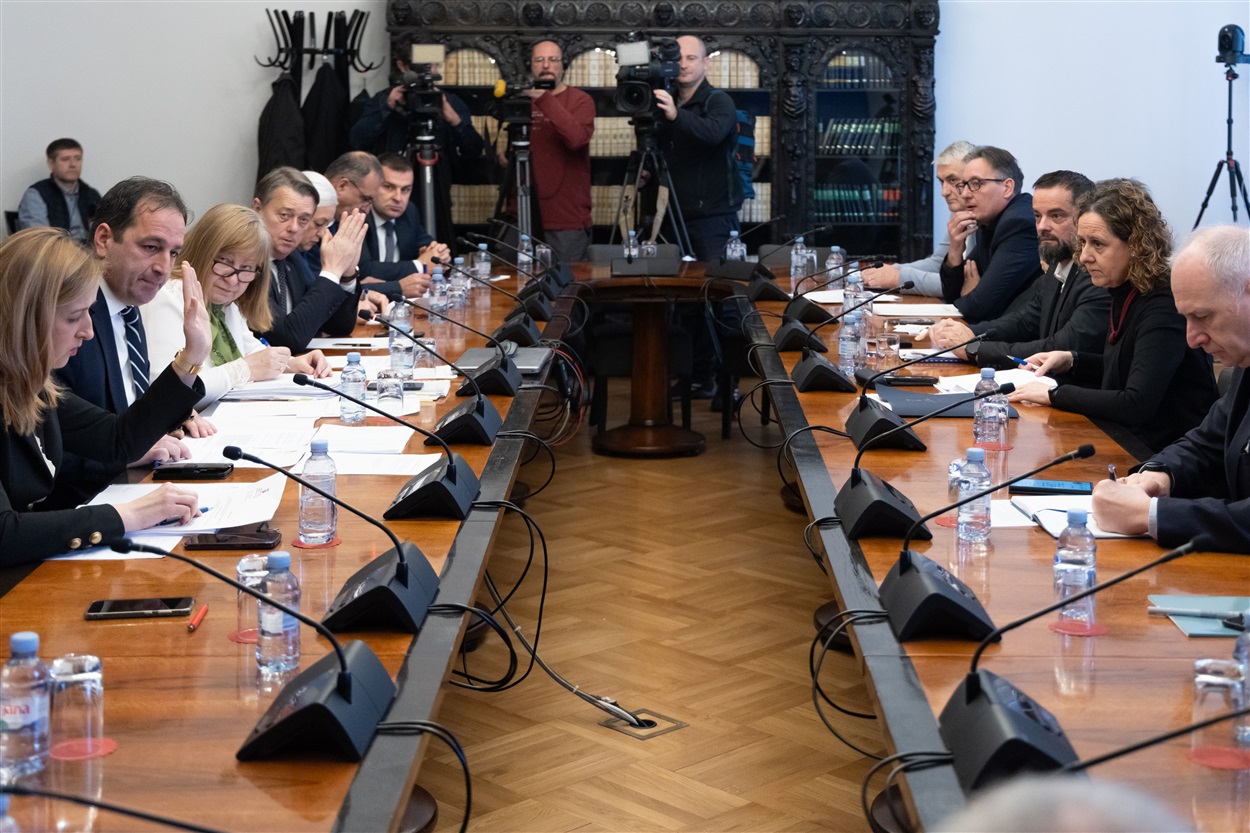
Zagreb - The Parliament's Media Committee on Wednesday ended a thematic session on government advertising in the media, convened at the request of the Opposition over the Mreža TV scandal, without any conclusion.
The session ended without any conclusion as neither the Opposition's proposal for a conclusion with amendments nor the parliamentary majority's proposal received the necessary number of votes.
The Opposition proposed that all state and public authorities and companies be instructed to submit, within 15 days, reports on media advertising, funds paid to PR agencies and contracts signed, and on the sponsorship of public events organised by media companies and PR agencies for 2022 and 2023.
The Opposition also proposed that the government put forward, within 30 days, criteria for transparent allocation of funds at state and public authorities and public companies for advertising in all types of media.
Representatives of the parliamentary majority proposed that the Electronic Media Council and the Electronic Media Agency (AEM) instruct all state institutions and public authorities and public companies to submit, within 30 days, reports on media advertising, funds paid to PR agencies, and the sponsorship of events organised by PR agencies and media companies for 2022 and 2023.
The proposal by the parliamentary majority asked that those reports contain also the name of the body of state administration or public authority, the total amount spent on advertising, the name of the publisher and the activity or service for which money was paid, as well as the duration and value of the contracts.
Neither proposal received the necessary six votes.
Minister: Not all media can be accused of being captured, corrupt
Culture and Media Minister Nina Obuljen Koržinek pointed to improvements in the legislation regarding transparency and government advertising, but also presented her take on the political background of the parliamentary committee's session.
"I do not want to comment on some advisor who told someone that he could trade in influence or on using that, as can be heard in the public sphere, to accuse all media of being captured and corrupt. I cannot accept that as Culture and Media Minister," Obuljen Koržinek said, noting that government advertising is not illegal and does not necessarily lead to corruption.
AEM director Josip Popovac said that "the affair is very unpleasant for the media sector" but that "Croatia's media sector is well regulated" and that it would not be good to send bad messages over one criminal case.
Sever: Advisor is not the problem, the system that needs to be changed is
European Federation of Journalists and Croatian Journalists Union president Maja Sever said that it is important not to agree to the assertion that the Mreža TV scandal is over, namely, "that it is only about an advisor - the advisor is not the problem, the system that needs to be changed is the problem."
The system should be amended to define clear mechanisms of control and sanctions for the non-transparent spending of public money for one's own political benefit and to incorporate in the process of allocation of advertising funds professional criteria rather than leaving the relevant decisions to an advisor, minister, mayor or a marketing agency, she said.
If that is not done, media capture will continue, Sever said.